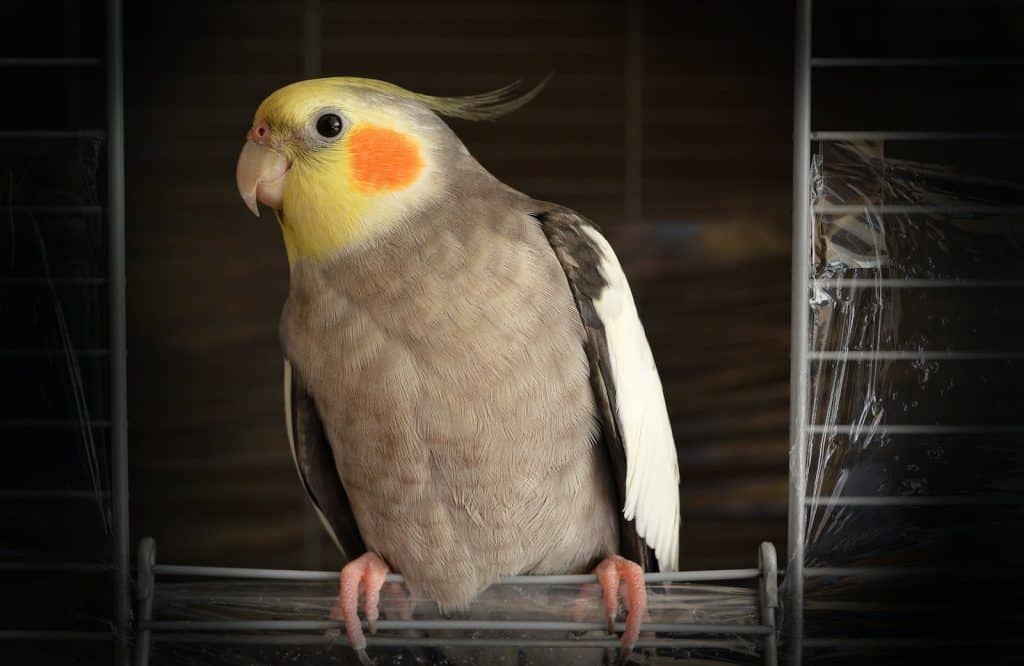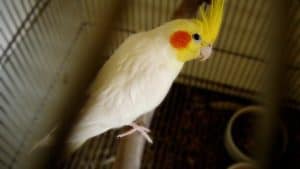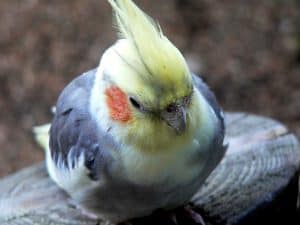Cockatiels are fascinating creatures with unique characteristics and behaviors. One such aspect that intrigues many pet owners and bird enthusiasts is their vision, particularly in low light conditions. Can cockatiels see in the dark? Do they experience night frights?
The answer is not a simple yes or no, as their ability to see in dim light is not as strong as some other animals. However, they do possess certain visual capabilities that allow them to navigate in the dark to a certain extent. In this article, we will explore the cockatiels’ field of vision, their ability to see in the dark, and how it impacts their behavior and well-being.
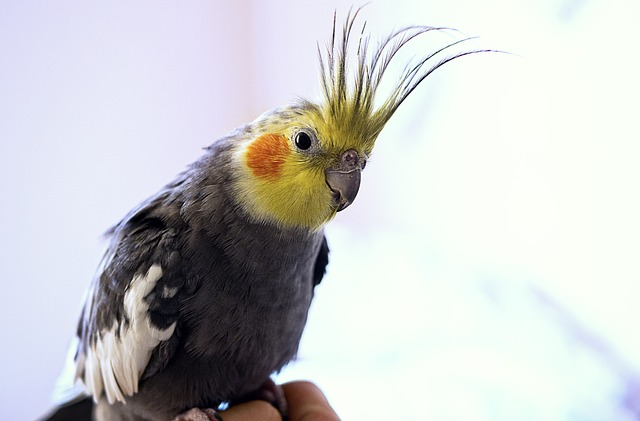
Do Cockatiels Have Night Vision?
To answer the question, “do cockatiels have night vision?”, it is important to first understand the structure of their eyes. Unlike nocturnal animals, they do not have a developed night vision system that enables them to see clearly in complete darkness. However, their eyes are designed to capture more ambient light than human eyes, which allows them to see better in dim light conditions. In fact, their eyesight is considered to be excellent, as they can perceive a wider range of colors, including ultraviolet light, which is invisible to the human eye.
How Far Can Cockatiels See and Can Cockatiels See in the Dark?
The exact range of a cockatiel’s vision is difficult to determine, but it is believed that they possess excellent vision that allows them to see far distances. Their field of vision is almost 360 degrees, enabling them to spot predators and other potential threats with ease.
As for the question, “can cockatiels see in the dark?”, it is crucial to note that they are primarily diurnal animals, which means they are active during the day and sleep at night. Consequently, their eyes are not adapted for complete darkness, but they can still navigate and function in dim light conditions. This is because their eyes contain more rod cells than human eyes, which are responsible for detecting light and motion in low light situations.
Night Frights and the Importance of a Night Light
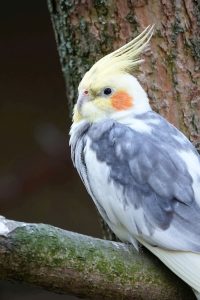
One common issue faced by pet cockatiels is night frights, a phenomenon where they become startled and panicked in the dark. This can be triggered by sudden noises, movements, or even a change in temperature, causing them to thrash around in their cage, potentially injuring themselves. In some cases, night frights can lead to stress, which may weaken their immune system and make them more susceptible to illness.
To prevent night frights, it is essential to provide a night light for your cockatiel’s cage. This can be a small, non-invasive light that provides just enough illumination for them to see their surroundings without disrupting their sleep. It is also crucial to ensure that their cage is placed in a quiet and calm environment, away from sudden noises and disturbances.
Cockatiel Sleep Patterns and the Need for Uninterrupted Sleep
Like most daytime animals, cockatiels require a good night’s rest to maintain their health and well-being. In the wild, cockatiels sleep when the sun begins to set and wake up when it rises. They follow a similar pattern in captivity, requiring around 10-12 hours of uninterrupted sleep each night.
To ensure your pet cockatiel gets a good night’s rest, it is important to maintain a consistent sleep schedule and create a comfortable sleep environment. This includes providing a night light to prevent night frights, keeping their cage in a quiet area, and maintaining a consistent temperature to avoid sudden changes that may startle them.
- STURDY CONSTRUCTION - Made of the highest-quality iron frame with a black powder varnish guaranteed to make this birdcage sturdy and durable, even against playful birds; With 4 caster wheels at the bottom, so you can move it anywhere you like, saving you effort
- MULTIPLE DOORWAYS - Designed with 2 doorways for your pet birds to enter and exit; The top of the cage opens up and can be propped open with a wooden crossbeam for your birds to stand on; Traditional doors are located on the side of the cage
- SLIDE-OUT TRAY - Equipped with a plastic tray at the bottom of this bird cage that can be removed for easy cleaning, so as to keep a clean and tidy environment as well as keep your pets safe
- VARIOUS WAYS TO PLAY - Includes a swing and multiple bars to stand on; Convenient doors so you can change the food without disturbing your pets; Locking joints to keep the cage secure; With little design features that stand out among the crowd
- EXTRA STORAGE SPACE - Comes with an additional mesh shelf so you can store food and toys out of the way; Provided with a wealth of accessories, including 4 Wooded perches, 4 Feeding cups, and 1 swing
How To Help Your Cockatiel With Night Frights?
Helping your cockatiel cope with night frights is essential for their well-being, as these episodes can cause stress and potential injuries. Here are some tips on how you can help your cockatiel with night frights:
1. Provide a night light: One of the most effective ways to prevent night frights is to provide a soft, non-invasive night light near your cockatiel’s cage. This will give them enough visibility to see their surroundings without disturbing their sleep.
2. Keep the cage in a quiet area: Ensure that your cockatiel’s cage is placed in a calm, quiet area of your home, away from sudden noises or disturbances that could trigger a night fright episode.
3. Maintain a consistent sleep schedule: Establishing a regular sleep schedule for your cockatiel can help reduce stress and anxiety, making night frights less likely to occur. Try to put your cockatiel to bed around the same time each night and wake them up at the same time each morning.
4. Create a comfortable sleep environment: Provide your cockatiel with a cozy sleeping area within their cage. This can include a soft perch and a cover for their cage to create a sense of security. Make sure the cage is clean and well-maintained to minimize any potential stressors.
5. Minimize sudden noises and movements: Be mindful of any sudden noises or movements that could startle your cockatiel during the night. This includes turning off loud appliances, keeping other pets away from the cage, and being cautious when moving around the room where the cage is located.
6. Gradually acclimate your cockatiel to new environments: If you have recently moved or changed the location of your cockatiel’s cage, give them some time to adjust to their new surroundings. This can help reduce anxiety and the likelihood of night frights.
7. Monitor and observe your cockatiel: Keep an eye on your cockatiel’s behavior and take note of any triggers that may cause night frights. By understanding what causes these episodes, you can take steps to prevent them and help your cockatiel feel more secure.
8. Provide toys and enrichment: Keeping your cockatiel mentally stimulated during the day can help reduce their anxiety levels, making them less prone to night frights. Provide a variety of toys and activities to keep them engaged and occupied.
Conclusion
In conclusion, while cockatiels do not possess fully developed night vision like nocturnal animals, they can still see and navigate in dim light conditions. Their excellent vision and wide field of view enable them to detect potential threats and protect themselves. However, as diurnal creatures, they require a proper sleep environment that includes a night light to prevent night frights and ensure a good night’s rest.
By understanding your pet cockatiel’s visual capabilities and providing them with the appropriate care, you can help them lead a happy and healthy life. So, while they may not be able to see as well in the dark as some other animals, they can still function with the right support and care from their loving owners.
